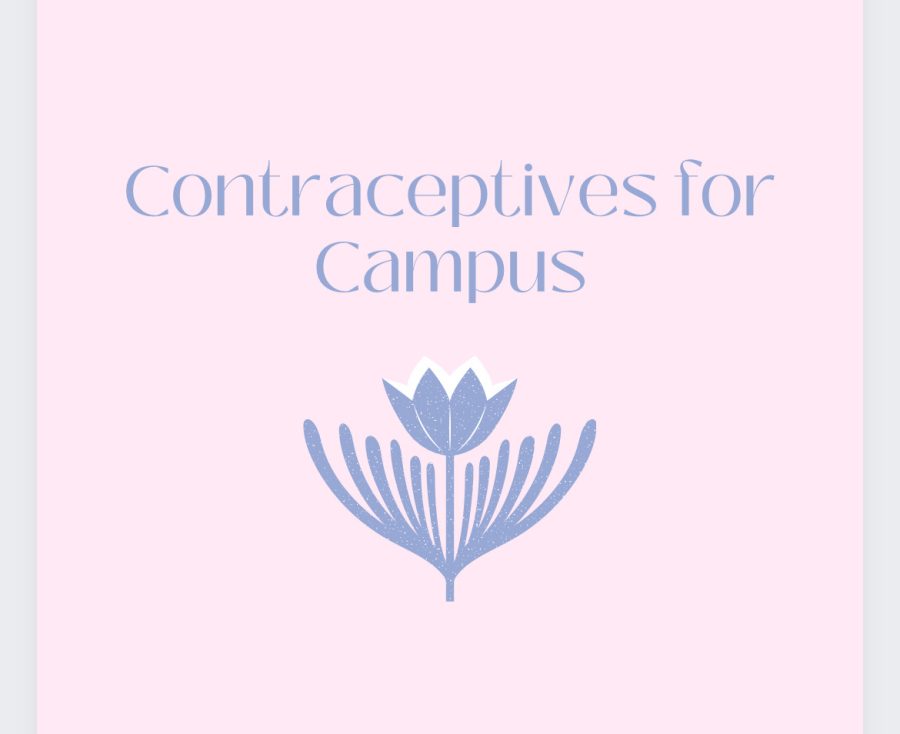Contraceptives for Villanova’s Campus
Courtesy of Contraceptives for Campus
Contraceptives for Campus is a student group advocating for further sexual health services.
February 15, 2023
What started as a final project for their Social Justice and Inclusivity Communitas course, which was sparked by conversations surrounding the overturning of Roe v. Wade in June of 2022 and its impacts on reproductive health, has turned into the start of a student-run campaign to advocate access for free contraceptives on college campuses.
“Not having [access] [to] contraceptives negatively impacts women on our campus,” a first-year Villanova student involved with Contraceptives for Campus commented.
As an institution founded in the Augustinian Catholic tradition, Villanova University does not “provide materials [for] preventing conception.” Contraceptives for Campus continued to remark that it is hypocritical that the University Health Center takes measures to test students for STIs/STDs, but provides nothing to prevent them in the first place.
Contraceptives for Campus’ aim is not to necessarily change University policy regarding contraceptives, but, instead, as a first-year working on the initiative put it, to “meet student needs while respecting university policy and beliefs.”
After visiting a friend at the University of Virginia, the first-year student was taken aback as
University-provided condoms were available in communal bathrooms in residence halls to promote safe sex. This was Contraceptives for Campus’ jumping-off point. However, as such additions to communal bathrooms would require approval from Residence Life and the Institution, this option was out of the question.
“There is always a way to work around a challenge,” the first-year said, “[and] there is fun in that.”
Those working on the initiative have brainstormed potential solutions that could be mutually beneficial for the University and its students, including the creation of a door-to-door service run through an app, non-affiliated with Villanova. Think Doordash for condoms: students would anonymously request a contraceptive to be delivered to their dorm for a small fee.
Now, the initiative consists of 10 individuals. On February 7th, Contraceptives for Campus hosted an interest meeting in Bartley Hall. Seven new students showed up, bringing the team to a total of 17 students. Contraceptives for Campus has received positive support from students and its Instagram account is slowly growing in popularity.
“[We’re] looking more at doing something rather than talking,” the first-year commented. While unable to be an official campus organization, Contraceptives for Campus plans to work around this challenge, potentially working with other existing organizations on campus dedicated to dialogue surrounding reproductive rights. Additionally, the campaign is getting in contact with similar student groups at other Catholic universities, such as the University of Notre Dame and Georgetown University.
On its Instagram (@contraceptivesforcampus), students can learn more about the campaign. As a grassroots organization, the group relies heavily on donations, which can help turn those talked-about workarounds into reality, including their app. Additionally, there is an “Education” highlight with different posts about sexual health from reputable sources, including Planned Parenthood and Sexual Health: 24 Hours A Day, a service partnered with the British National Health Service (NHS). The posts cover practical topics, such as instructions for how to use certain contraceptive devices, to other posts regarding sex talk and how partners can safely and effectively communicate with each other to promote safe, sexual encounters.



James J. Holstein, M.D. • Feb 15, 2023 at 3:46 pm
Perhaps the students should rethink their priorities. Villanova is first and foremost a Catholic university, as such it is obligated to provide students with an education based on Catholic teachings and morals. What they are advocating is in direct conflict with those teachings and values. Hopefully, the administration will voice strong opposition to this proposal.